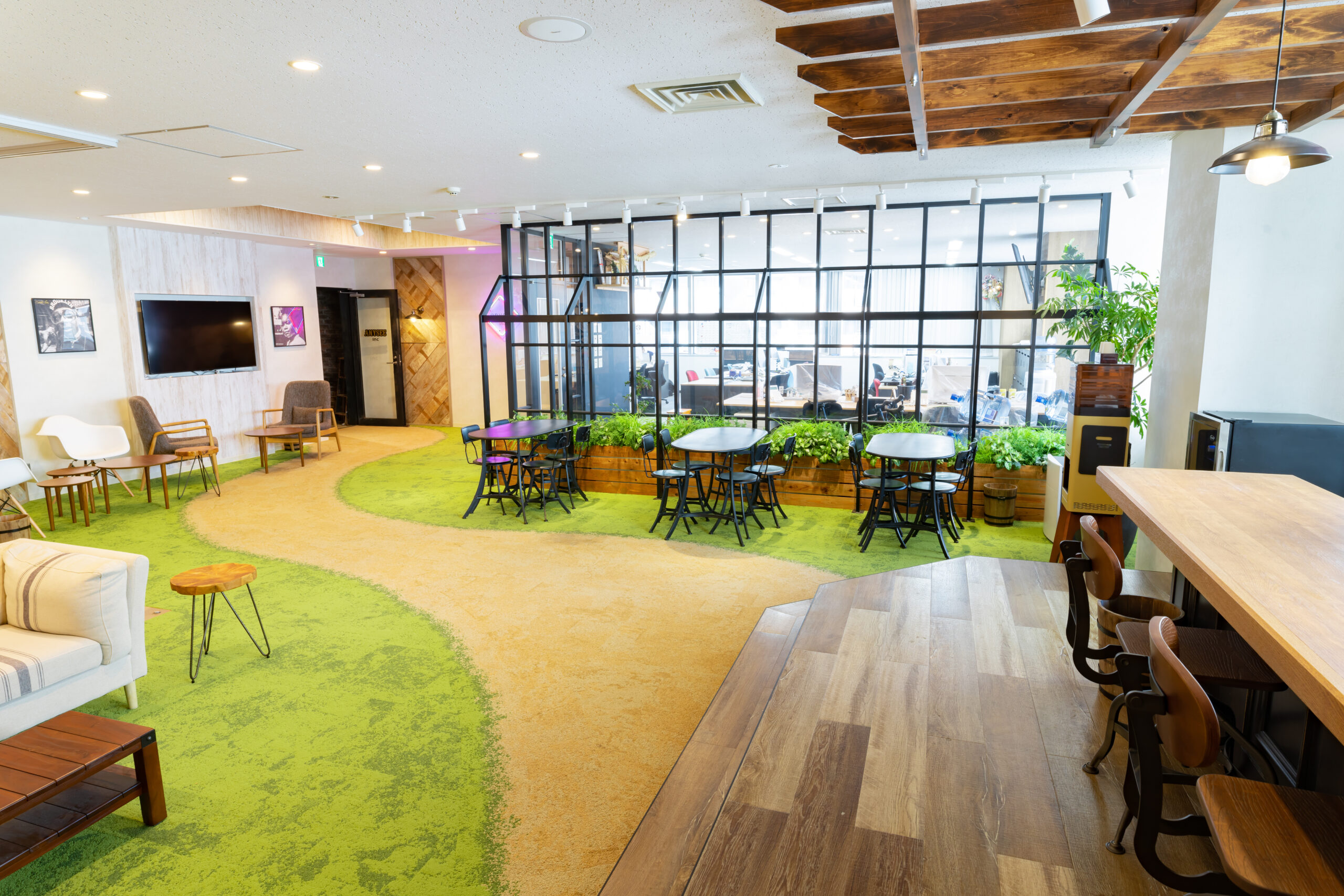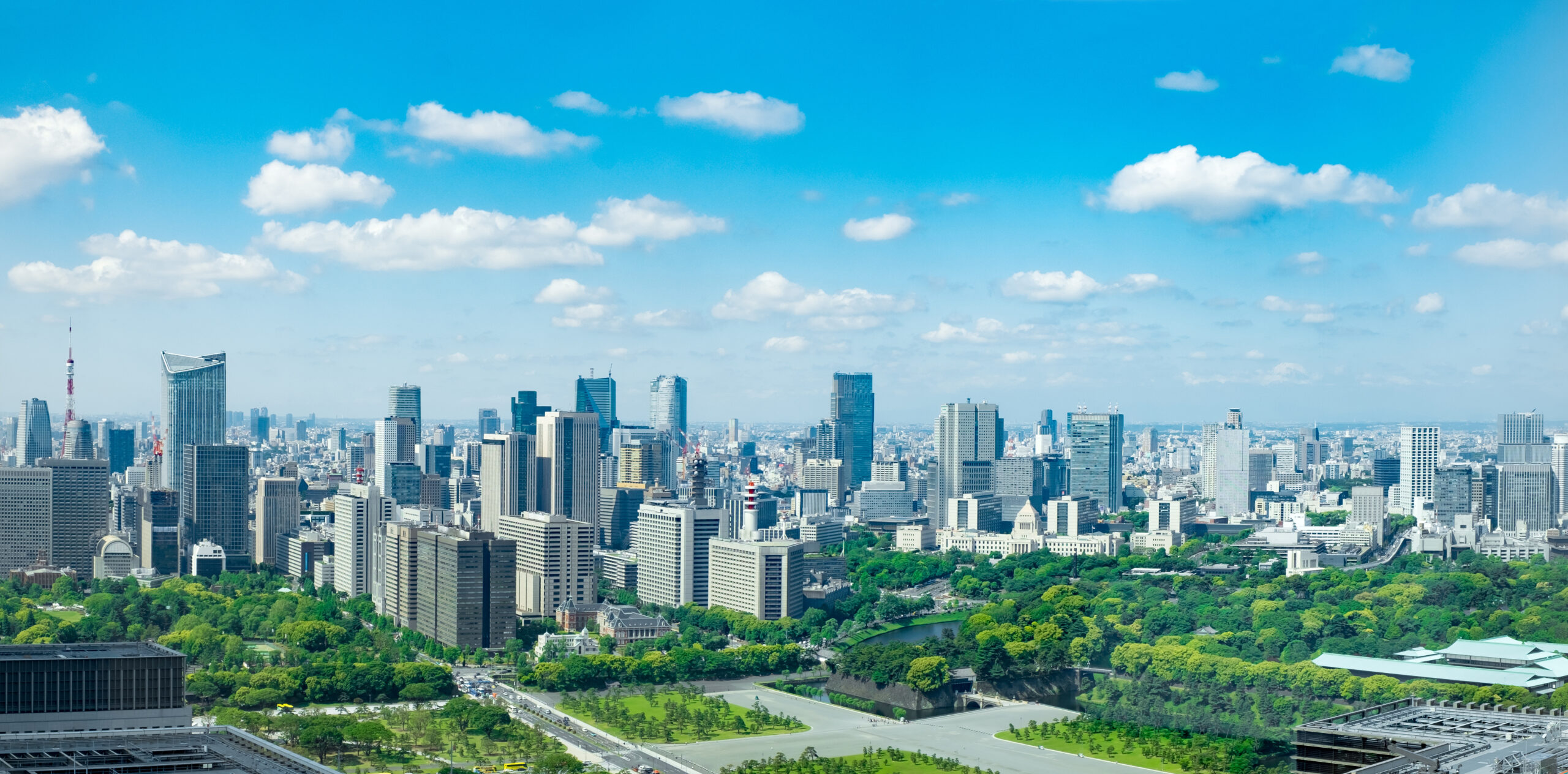Tokyo Coworking & Japan’s Digital Nomad Visa: Your Expat Productivity Power-Up Guide

Tokyo’s amazing, but working here as a foreigner can be tough, right? Finding a good workspace and figuring out the visa stuff feels like a lot. What if it could be simple?
This guide shows you the easiest way to find awesome coworking spaces in Tokyo, perfect for expats. Plus, we explain Japan’s Digital Nomad Visa so it all makes sense.
Imagine getting your best work done in a supportive environment. And picture yourself easily meeting other professionals just like you. Get ready to work comfortably and enjoy Tokyo life!
Why Tokyo is a Power-Up for Expat Digital Nomads
Tokyo: A Magnet for Global Talent
Tokyo is a huge city that mixes super modern things with old Japanese traditions, and it attracts people from all over the world. It’s a major center for business, especially if you’re in tech, money, or creative jobs. If you’re looking to build your career internationally, Tokyo is a place where you can find big opportunities. Lots of companies here are looking for talented people from different countries.
But it’s not just about work. Tokyo is also really interesting culturally. You can visit peaceful gardens and old temples, or check out the cool, modern pop culture and amazing food. It’s a mix of old and new that’s exciting and different. This makes Tokyo a great place to live and work because there’s always something new to see and do. Plus, Tokyo is known for being safe, clean, and easy to get around with trains and subways. This makes daily life comfortable and convenient for people who move here from other countries. Basically, Tokyo is a global city where you can really push your career forward and have a great life at the same time, which is why it’s a top choice for digital nomads and expats.
The Digital Nomad Lifestyle in Japan: Why It Works
Japan, and especially Tokyo, might seem like a surprising choice for the digital nomad lifestyle, but it actually works really well for several reasons. First, Japan has amazing internet. You can find fast and reliable Wi-Fi almost everywhere – in cafes, coworking spaces, and even many public areas. This is super important for digital nomads who need to be online all the time for work. You won’t be struggling with slow connections here.
Second, Tokyo offers a great balance between work and play. You can be very productive when you need to be, thanks to the many excellent coworking spaces we’ll talk about later. But when you’re off work, you have endless options for entertainment and relaxation. Whether you’re into exploring historical sites, enjoying incredible food, shopping, or experiencing vibrant nightlife, Tokyo has something for everyone. This balance is key to a sustainable and enjoyable digital nomad life.
Third, despite some perceptions, living and working in Tokyo can be quite efficient for foreigners. While the language barrier can be a challenge, especially initially, in major business areas and in places catering to expats, you’ll find a lot of English support. Plus, the public transportation system is incredibly efficient and punctual, making it easy to navigate the city and get to your coworking space or explore after work. Once you get used to the system, getting around Tokyo is surprisingly straightforward.
Boosting Your Productivity in a Vibrant City
Tokyo’s vibrant energy can actually be a big help for boosting your productivity as a digital nomad. It might sound counterintuitive – a busy city being good for focus – but it works. Think about it: being surrounded by activity and innovation can be really motivating. You’re in a place where things are happening, businesses are thriving, and people are driven. This atmosphere can push you to be more focused and ambitious in your own work.
Also, Tokyo is designed for efficiency. Things work smoothly here. The trains run on time, services are reliable, and there’s a general sense of order. This lack of everyday hassles means you can spend less time dealing with frustrations and more time concentrating on your tasks. Imagine not having to worry about basic things going wrong – that frees up a lot of mental space for work.
Finally, Tokyo offers so many great places to work outside of your home. Beyond just coworking spaces (which we’ll discuss in detail later), you’ll find plenty of cafes with good Wi-Fi and quiet corners, libraries, and even parks where you can set up your laptop. Having these options means you can change your environment to stay inspired and avoid getting stuck in a work-from-home rut. Variety in your workspace can really help keep your mind fresh and your productivity high.
Embracing Community and Connection as an Expat
Moving to a new country can sometimes feel isolating, but Tokyo offers many ways for expats to embrace community and build connections. While it’s a huge city, there are lots of groups and networks specifically for foreigners. You can find expat meetups for almost any interest – from hiking and sports to tech and entrepreneurship. These groups are a great way to meet people who understand what it’s like to live and work in Japan as a foreigner.
Coworking spaces themselves are also fantastic hubs for community. They’re not just places to work; they’re places to meet other professionals from all over the world. Many coworking spaces in Tokyo actively organize social events, workshops, and networking opportunities. This makes it easy to connect with people in your field, share experiences, and even find collaborators or friends.
Don’t underestimate the power of local connections either. While English isn’t universally spoken, many Japanese people are curious and welcoming to foreigners. Making an effort to learn a few basic Japanese phrases and being open to interactions can lead to surprising and rewarding connections with locals. Whether it’s through language exchange events, hobby groups, or just chatting with people at local cafes, building bridges with the local community can enrich your expat experience in Tokyo and make you feel more at home.
We also recommend checking out this article!

Understanding the Japan Digital Nomad Visa: Your Gateway to Working in Tokyo
Japan’s Digital Nomad Visa: The Basics
Japan has recently launched a new visa specifically designed for digital nomads, making it easier for remote workers to experience life and work in Japan. This visa, officially known as 「特定ビザ:特定活動(デジタルノマド)」, marks a significant step in Japan’s efforts to attract global talent and cater to the changing landscape of work. It became effective on 2024年4月1日, opening up new possibilities for eligible individuals seeking a longer stay in Japan for work and leisure.
The primary purpose of the Japan Digital Nomad Visa is to allow highly skilled foreign professionals who are employed by companies outside of Japan, or who operate their own businesses overseas, to reside in Japan for up to six months. This visa is specifically for those who earn their income remotely and are not seeking employment within the Japanese job market.
It’s designed for individuals who want to immerse themselves in Japanese culture, explore its cities and regions, and enjoy a high quality of life while maintaining their existing careers and income streams. Essentially, it’s a workation visa, allowing you to combine work and vacation in Japan legally and for a more extended period than a typical tourist visa.
Eligibility Requirements: Is the Japan Nomad Visa For You?
Not everyone is eligible for the Japan Digital Nomad Visa. There are specific requirements you need to meet to qualify. Let’s break down the key criteria:
Income Threshold: JPY 10 Million (Approx. USD/EUR Equivalent)
One of the main requirements is your income. To be eligible, you need to prove that you earn at least 1000万円 per year. This is roughly equivalent to USD 67,000 or EUR 62,000 (as of February 2025, exchange rates fluctuate). You’ll need to provide official documents to prove your income, such as tax returns or bank statements. This income threshold is set to ensure that visa holders can financially support themselves during their stay in Japan without becoming a burden on public funds.
Nationality and Employment Types
The Digital Nomad Visa is not open to all nationalities. Currently, it is limited to passport holders from 49 countries and regions that have visa exemption arrangements with Japan. These include countries in North America, Europe, Asia, and Oceania (a full, updated list should be checked on the Ministry of Foreign Affairs of Japan website for the most current information). Regarding employment, the visa is designed for freelancers, independent contractors, and employees of foreign companies who can perform their work remotely. It is not intended for those seeking employment with Japanese companies.
Health Insurance and Other Key Criteria
Health insurance is another essential requirement. Applicants must have private health insurance to cover medical expenses during their stay in Japan. This is important to ensure access to healthcare and avoid potential financial burdens in case of illness or injury. Beyond income, nationality, and health insurance, there may be other criteria such as criminal record checks and proof of onward travel arrangements (to show you intend to leave Japan after your visa expires). It’s crucial to check the official requirements on the website of the Japanese Ministry of Foreign Affairs or the Japanese embassy/consulate in your country for the most up-to-date and complete list of eligibility criteria before applying.
Visa Duration and Renewal: Planning Your Stay
The Japan Digital Nomad Visa is designed for a specific duration of stay, and it’s important to understand the rules around how long you can remain in Japan and whether you can extend your stay.
The 6-Month Stay: Details and Limitations
The initial Japan Digital Nomad Visa grants you a stay of up to six months. This is a single-entry visa, meaning that if you leave Japan, even for a short trip, your visa will expire, and you will need to apply for a new one to re-enter under this status. The six-month period is not renewable from within Japan. This means that you cannot simply extend your Digital Nomad Visa while you are in Japan. It’s crucial to plan your stay accordingly, keeping the six-month limit and single-entry nature of the visa in mind.
Extending Your Stay: Renewal vs. Re-application
Currently, the Japan Digital Nomad Visa cannot be renewed from within Japan. If you wish to stay in Japan for longer than six months under this visa category, you will likely need to leave Japan and then re-apply for the visa from outside the country. There is often a required “cooling-off” period before you can re-apply, which typically means you must spend a certain amount of time outside of Japan (potentially also six months, but this needs official verification) before you can submit a new application.
It’s essential to confirm the exact rules regarding re-application and any required waiting periods with the Japanese Ministry of Foreign Affairs or your local Japanese embassy or consulate, as these regulations can be subject to change. For longer-term stays beyond six months, you may need to consider other visa options if the Digital Nomad Visa re-application is not feasible or desirable for your circumstances.
Applying for the Japan Digital Nomad Visa involves a process that requires careful preparation and attention to detail. While the exact steps and requirements can vary slightly depending on your nationality and the specific Japanese embassy or consulate you apply through, here is a general overview of what you can expect:
Step-by-Step Application Process: What to Expect

Navigating the Official Application Website
The first step is to consult the official website of the Japanese Ministry of Foreign Affairs (MOFA) or the website of the Japanese embassy or consulate in your country. These websites are your primary sources of accurate and up-to-date information regarding the Digital Nomad Visa. Look for sections related to visas, and then specifically for the “Specified Visa: Designated Activities (Digital Nomad)” category. The websites should provide details on eligibility requirements, required documents, application procedures, and frequently asked questions. Carefully review all the information provided on these official sources, as this is the most reliable guide for your application.
Required Documents Checklist
Gathering the required documents is a crucial step in the application process. While the exact list may vary slightly, you can generally expect to need the following:
- Valid Passport: Your passport must be valid for the duration of your intended stay in Japan.
- Visa Application Form: This form can typically be downloaded from the website of the Japanese embassy/consulate.
- Passport-sized Photos: You will need to provide recent passport-sized photographs that meet specific requirements (size, background, etc.).
- Proof of Income: Documents demonstrating that you meet the minimum annual income requirement of JPY 10 million (e.g., tax returns, bank statements, employment contracts).
- Proof of Employment/Freelance Status: Documents confirming your employment with a foreign company or your freelance/business ownership (e.g., employment letters, business registration).
- Health Insurance Certificate: Proof of valid private health insurance coverage for your stay in Japan.
- Flight Itinerary: Evidence of your travel arrangements to and from Japan (onward travel).
- Residence Plan in Japan: Details of where you plan to stay in Japan (hotel reservations, etc.).
- Other Supporting Documents: Depending on your individual circumstances and the specific requirements of the embassy/consulate, you may need to provide additional documents.
Typical Processing Time
The processing time for the Japan Digital Nomad Visa can vary. It’s advisable to apply well in advance of your intended travel date to allow sufficient time for processing. While official processing times are not always explicitly stated, it’s reasonable to expect several weeks to a month or even longer for your application to be processed. Factors that can affect processing times include the volume of applications being processed at the embassy/consulate, the completeness of your application, and your nationality.
Tokyo Coworking Spaces: A Guide to Productivity Hubs for Expats
Why Coworking in Tokyo is a Smart Choice for Expats
For expats and digital nomads in Tokyo, coworking spaces offer a compelling alternative to working from home or cafes. They provide a professional and supportive ecosystem that can significantly enhance your work experience in the city. Let’s explore the key advantages:

Escape Isolation: Building Your Professional Network
Working remotely can sometimes lead to isolation, especially in a new city. Coworking spaces solve this by providing a built-in community. You’ll be surrounded by other professionals from diverse backgrounds, including fellow expats and locals. This environment fosters networking opportunities, both planned and spontaneous. Imagine striking up a conversation with someone during a coffee break and discovering a potential collaborator or a valuable connection in your industry. Coworking spaces actively combat the loneliness of remote work and help you build a professional network in Tokyo.
Boost Productivity: Dedicated Work Environments
While working from home can be comfortable, it’s often full of distractions. Coworking spaces are specifically designed for productivity. They offer dedicated workspaces, quiet areas, and professional facilities that help you focus and get things done. Unlike noisy cafes or cramped apartments, coworking spaces provide a structured and professional atmosphere that minimizes interruptions and maximizes your concentration. This dedicated environment can significantly boost your efficiency and output.
Access to Top-Notch Facilities and Amenities
Coworking spaces in Tokyo typically offer a range of top-notch facilities and amenities that are far beyond what you’d find at home or in a coffee shop. This often includes high-speed Wi-Fi, comfortable ergonomic chairs, meeting rooms equipped with presentation technology, printing and scanning services, and reliable tech support. Many spaces also offer extra perks like on-site cafes, kitchens, relaxation areas, and even fitness facilities. Having access to these professional amenities can make your workday smoother, more comfortable, and more efficient.
English-Friendly Coworking Spaces in Major Cities
For expats in Tokyo, the availability of English-friendly coworking spaces is a major advantage. Many coworking spaces in Tokyo, especially those catering to international professionals, have English-speaking staff, provide services in English, and foster a multilingual environment. This makes it much easier to navigate logistics, ask for assistance, and feel comfortable in your workspace, even if you are still learning Japanese. Knowing that communication won’t be a barrier is a significant benefit for expats choosing a coworking space in Tokyo.
Types of Coworking Spaces in Tokyo: Finding Your Fit
Tokyo boasts a diverse range of coworking spaces, each with its own unique style, atmosphere, and offerings. Understanding the different types available can help you find the perfect fit for your work style and preferences. Here are some of the main categories you’ll encounter:
Large Chain Coworking Spaces: WeWork, Regus, etc.
Large international chains like WeWork, Regus, and others have a significant presence in Tokyo. These spaces are characterized by their multiple locations across the city, often in prime business districts. They typically offer modern, well-designed facilities with a consistent standard of amenities worldwide. You can expect features like stylish workspaces, various types of meeting rooms, business support services, and a focus on professionalism and efficiency. Chain coworking spaces are a solid choice if you value reliability, extensive networks, and a corporate feel. They are often well-suited for businesses needing a prestigious address and a range of services.
Cafe-Style Coworking: Casual and Convenient
For a more relaxed and informal work environment, cafe-style coworking spaces are gaining popularity in Tokyo. These spaces blend the ambiance of a cafe with the functionality of a coworking space. They often feature open-plan layouts, comfortable seating, and a casual atmosphere. Many cafe-style spaces are integrated with actual cafes, allowing you to easily grab coffee and food while you work. These are ideal if you prefer a flexible, drop-in workspace without long-term commitment, and if you enjoy the buzz of a cafe environment. They can be particularly convenient for short work sessions or when you need a change of scenery from your home or apartment.
If you’re seeking a coworking space that truly captures the cafe-style vibe, offering casual drop-in access and a relaxed, informal atmosphere, then consider exploring Basis Point (ベーシスポイント).

Finding Your Perfect Tokyo Base: Accommodation Options for Digital Nomads
Coworking-Friendly Accommodation: Seamless Work-Life Integration
For digital nomads, where you live and where you work are often closely linked. Choosing accommodation that complements your coworking lifestyle can make your time in Tokyo much smoother and more enjoyable. Here are some options that offer a great blend of living and working:
Co-living Spaces: Community and Convenience Combined
Co-living spaces are designed specifically for individuals who value community and convenience. These are essentially shared living arrangements where you have your own private room, but share common areas like kitchens, lounges, and yes, often coworking spaces within the building. Co-living spaces offer a ready-made community of like-minded people, often with organized social events and activities. They also handle many of the practicalities of setting up in a new city, like utilities and internet.
For digital nomads, co-living offers the ultimate work-life integration – you can literally walk downstairs to your workspace and easily connect with other professionals living in the same building. It’s a fantastic option if you prioritize community, convenience, and a hassle-free setup.
Serviced Apartments: Hotel-Style Comfort for Longer Stays
Serviced apartments provide a step up in terms of privacy and hotel-like amenities, while still being suitable for longer stays. These are fully furnished apartments that come with services like housekeeping, concierge, and often, business facilities. While not all serviced apartments have dedicated coworking spaces, many offer business centers or comfortable lobbies that can function as temporary workspaces. Serviced apartments offer a comfortable and convenient base with more independence than co-living, and the added services can free up your time and reduce daily hassles. They are a good choice if you value privacy, comfort, and hotel-style services for your Tokyo stay, and want a reliable workspace option within or very close to your accommodation.
Guesthouses & Hostels: Budget-Friendly and Social Options
For budget-conscious digital nomads who are also highly social, guesthouses and hostels can be surprisingly good options. While traditionally known for budget travel, many guesthouses and hostels in Tokyo have adapted to the needs of remote workers by offering dorm rooms and private rooms, as well as common areas that can be used for working. Some even have dedicated small coworking areas.
The main advantage of guesthouses and hostels is their affordability and highly social atmosphere. You’ll easily meet other travelers and digital nomads, and they often organize social events. While they may not offer the same level of privacy or dedicated workspace as co-living or serviced apartments, guesthouses and hostels can be a great starting point for digital nomads new to Tokyo who want to save money and connect with a vibrant social scene.
You should also check out the articles below!


Making the Most of Your Tokyo Expat Life: Community and Practicalities
Building Your Expat Community in Tokyo
Tokyo, while exciting, can feel overwhelming when you’re settling in as a foreigner. Building a community of fellow expats can make a huge difference in your experience, providing support, friendship, and valuable local insights. Here are some key ways to connect with other expats in Tokyo:

Networking at Coworking Spaces
As mentioned earlier, coworking spaces are excellent hubs for networking, and this extends to building your expat community. Many coworking spaces in Tokyo have a diverse international membership. Simply working alongside people from different countries creates opportunities for natural connections. Take advantage of common areas, coffee breaks, and organized events within your coworking space to chat with other members. You’ll likely find many fellow expats who are also navigating Tokyo life, creating an instant sense of camaraderie and shared experience. Coworking spaces provide a built-in platform for meeting people and forming friendships within the expat community.
Online Expat Communities and Meetups
Tokyo has a vibrant online scene for expats. Numerous online groups and communities exist on platforms like Facebook, Meetup, and dedicated expat forums. These groups are fantastic for finding information, asking questions, and connecting with other expats who share your interests or are living in similar areas. Meetup groups organize regular in-person events, ranging from casual social gatherings to hobby-based activities and professional networking events. Joining these online communities and attending meetups is a proactive way to expand your social circle and find your tribe in Tokyo.
Language Exchange and Cultural Events
Language exchange events are not only great for improving your Japanese (or helping others learn your language), but also for meeting both locals and expats. These events often create a relaxed and interactive environment where you can connect with people over a shared interest in language and culture. Similarly, cultural events organized by embassies, international organizations, or community centers often attract a diverse crowd, including many expats. Attending these events is a fun and enriching way to immerse yourself in Japanese culture while simultaneously meeting people from around the world who are also interested in Japan.
Conclusion
Your Tokyo Workation Awaits
Tokyo is a city that truly offers the best of both worlds for digital nomads: a dynamic and inspiring environment to boost your productivity, alongside a rich and endlessly fascinating culture to explore. With the new Japan Digital Nomad Visa simplifying the legalities and a wealth of excellent coworking spaces catering to international professionals, your dream of a Tokyo workation is now more achievable than ever. Embrace the opportunity to power up your career and your life in this incredible global city. Your Tokyo adventure, blending work and unforgettable experiences, is waiting to begin!
FAQ About Coworking and the Digital Nomad Visa in Japan
What exactly is the Japan Digital Nomad Visa?
The Japan Digital Nomad Visa, officially the “Specified Visa: Designated Activities (Digital Nomad)”, is a new visa launched in April 2024. It allows highly skilled foreign professionals who work remotely for companies outside of Japan (or run their own overseas businesses) to live and work in Japan for up to six months. It’s designed for those earning at least JPY 10 million annually and is currently available to passport holders from 49 countries and regions with visa exemption agreements with Japan.
How do I find English-speaking coworking spaces in Tokyo?
Many coworking spaces in Tokyo, especially those in central business districts and those catering to international clientele, are English-friendly. Resources like WeWork and Regus can help you locate spaces with English-speaking staff and services. Look for spaces that advertise “English support” or cater to “international members.”
What are the best neighborhoods for expats in Tokyo?
Popular expat-friendly neighborhoods in Tokyo include Central Tokyo for convenience, Shibuya & Shinjuku for vibrancy and entertainment, and other areas offering diverse atmospheres. Consider factors like commute to your coworking space and desired lifestyle when choosing a neighborhood. Online expat communities and real estate agents specializing in expats can provide further insights.
Also, check out this article!


Can you recommend some budget-friendly coworking options?
Cafe-style coworking spaces and guesthouses/hostels with workspaces can be more budget-friendly than traditional coworking spaces. Explore resources like Basis Point (ベーシスポイント) (Japanese website) for cafe options. Some independent coworking spaces outside of prime business districts may also offer more affordable rates.
Where can I find more information about expat communities in Tokyo?
Meetup is a great platform to find various expat groups and meetups in Tokyo. Search for groups based on your interests or keywords like “expat Tokyo.” Online expat forums and Facebook groups are also valuable resources for connecting with other expats and getting advice. Coworking spaces themselves also serve as excellent in-person communities.
